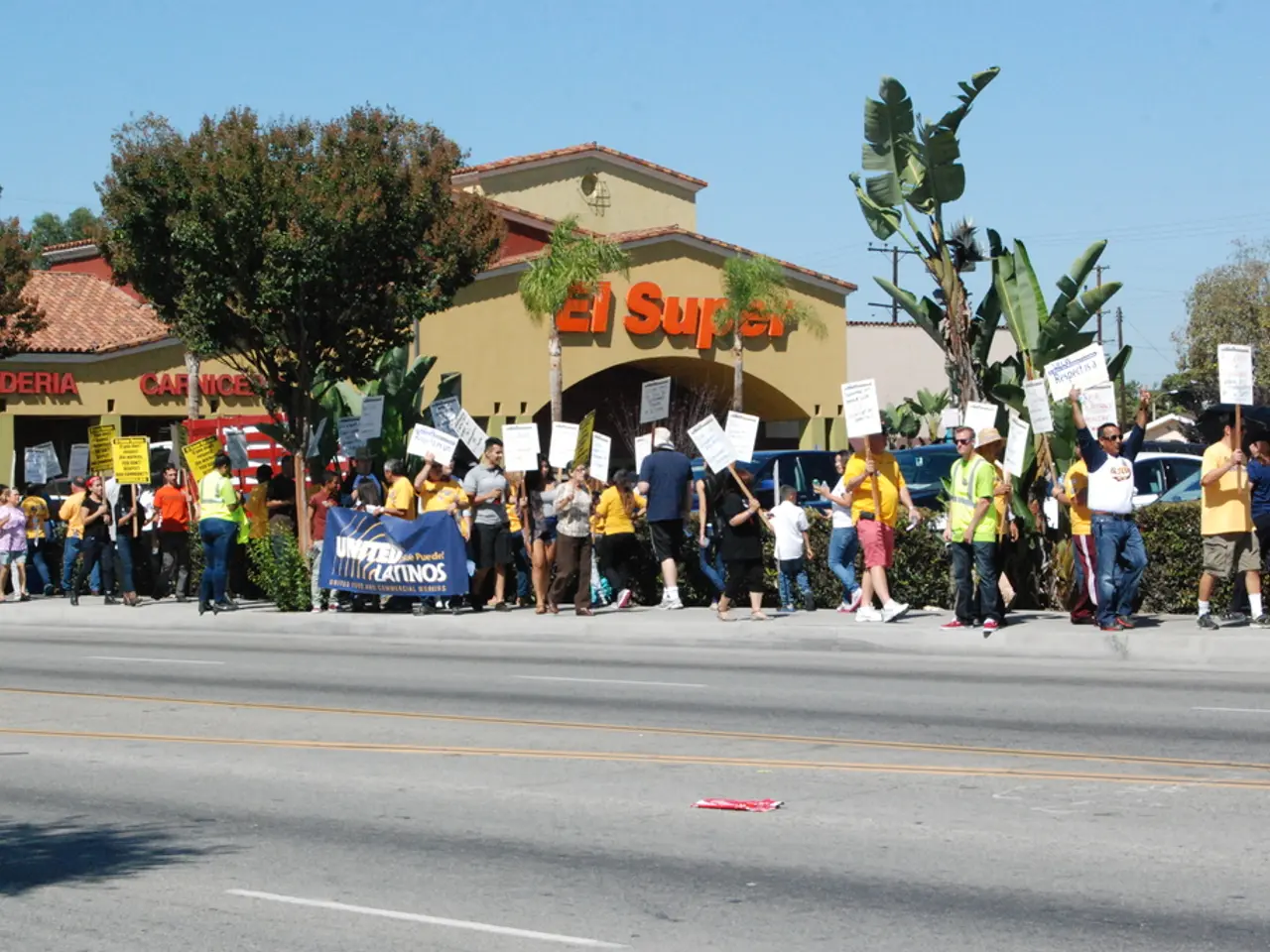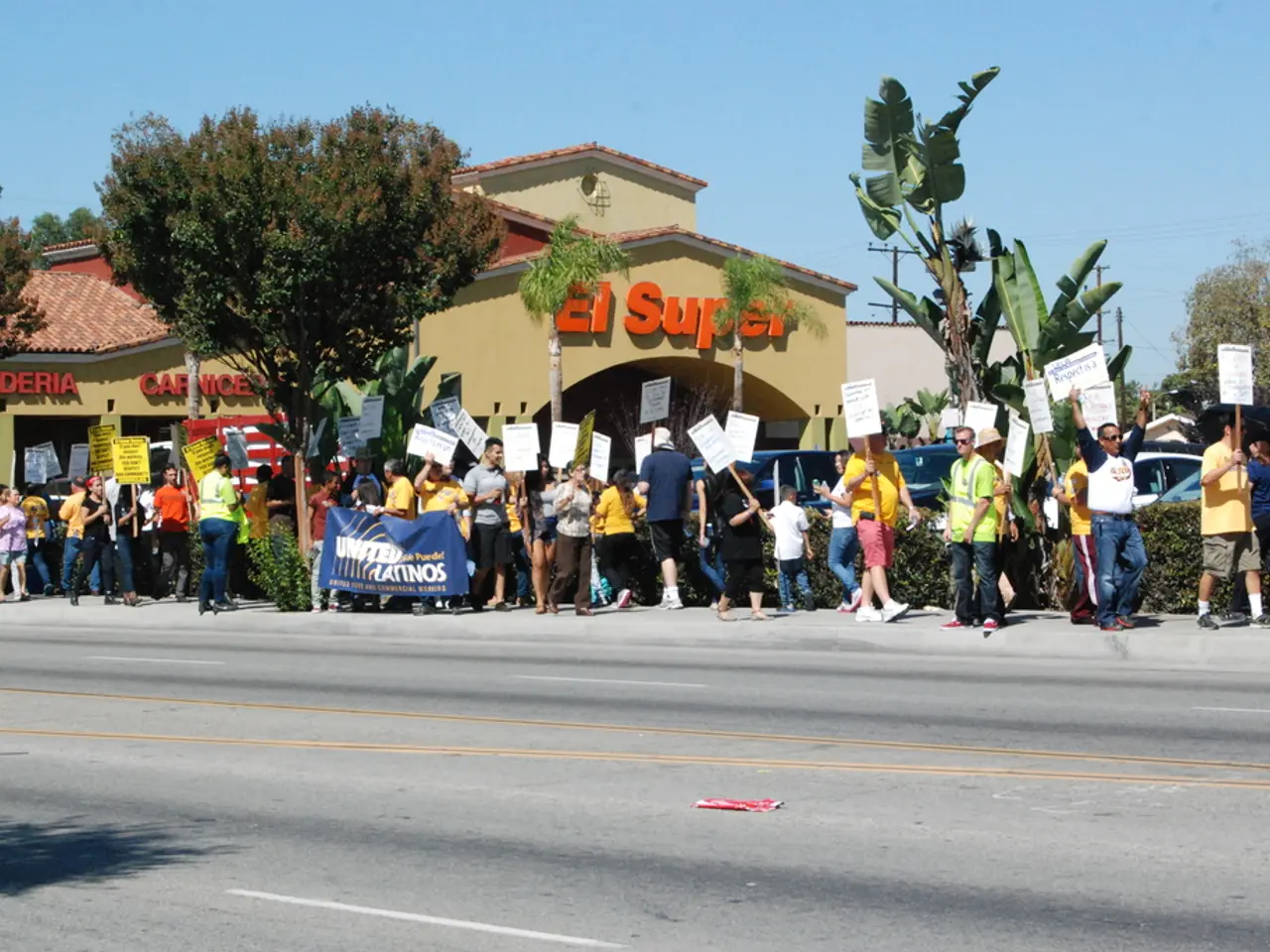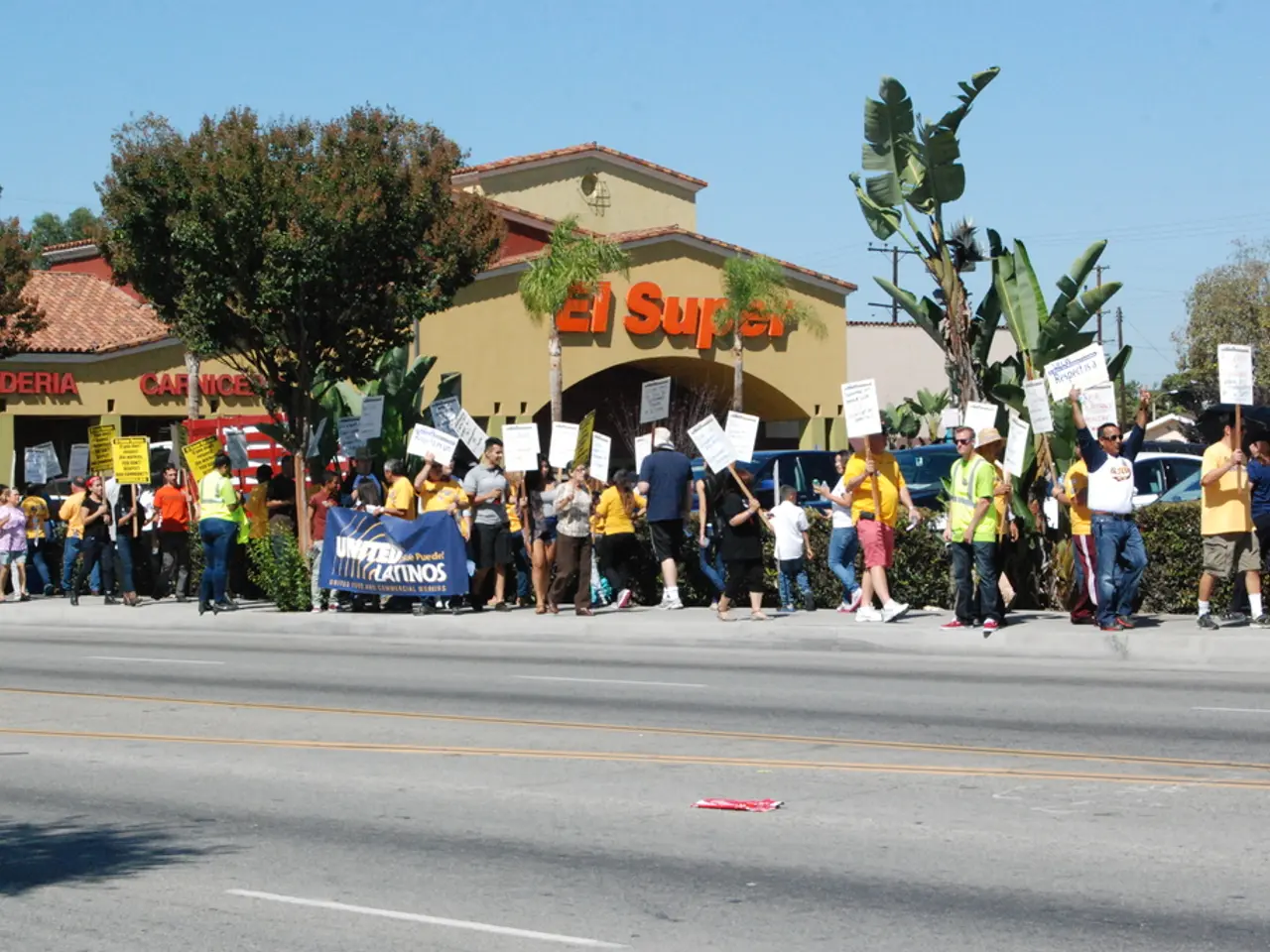Murderer in Magdeburg pens correspondence to slain targets
In the quiet city of Magdeburg, Germany, a wave of controversy has been stirred by letters written by Taleb A., the perpetrator of last year's devastating car-ramming attack at the city's Christmas market. The attack, which claimed six lives and left around 300 injured, some severely, has now been followed by an unexpected twist.
Taleb A., currently in custody in Berlin, managed to send handwritten letters to several victims of his attack while still in pre-trial detention[1][4]. The delivery of these letters has raised concerns among victims and observers about additional emotional distress or trauma being caused by receiving personal messages from the perpetrator of such violence.
Key concerns about the delivery of these letters include:
- Victim retraumatization: Receiving communications directly from the attacker may reopen emotional wounds and cause psychological distress for survivors still coping with the aftermath[1].
- Boundaries in victim protection: There is unease over whether sending and delivering such letters respects the boundaries and recovery process established for victims.
- Potential manipulation or provocation: Authorities and victim support groups worry that the attacker might use these letters to provoke victims or gain a platform to express ideologies or remorse in a way that could be harmful or manipulative.
Rüdiger Erben, the SPD parliamentary group's spokesman on the investigative committee for the attack, stated that the prosecution should have contacted the victims beforehand[3]. Guido Kosmehl, the justice spokesman for the FDP parliamentary group, reiterated the responsibility of the General Prosecutor's Office in protecting the victims and preventing re-traumatization[2][5].
The General Prosecutor's Office in Naumburg (Saxony-Anhalt) confirmed that Taleb A. had written to five injured parties[1]. It is suspected that the victims' addresses came from the investigation files[1]. The letters were forwarded to the victims in a separate sealed envelope with a cover letter, stating that the recipients could decide whether to read the letter[1].
Several politicians from Saxony-Anhalt are scrutinizing the authorities regarding the Taleb A. case, stating that mistakes were made[6]. The trial against Taleb A. will begin in a provisional courtroom in Magdeburg due to the large number of affected people.
Taleb A., a native of Saudi Arabia, is currently in custody in Berlin[7]. The delivery of these letters has sparked debate and concern over the appropriateness and potential impact of such communications on the victims. As the trial approaches, the city of Magdeburg and the victims continue to grapple with the aftermath of the attack and the unexpected revelations that have followed.
[1] Berliner Morgenpost [2] Tagesspiegel [3] Deutschlandfunk [4] Sueddeutsche Zeitung [5] RND [6] MDR [7] BILD
- The controversy in Magdeburg, Germany, over Taleb A.'s letters to victims of his car-ramming attack has raised questions about social policy and community policy regarding victim protection, particularly in maintaining boundaries and preventing re-traumatization during war-and-conflicts and crime-and-justice incidents.
- The ongoing debate on the delivery of Taleb A.'s letters highlights the importance of politics and general-news reporting on issues of economic and social cohesion, as well as the role of social policy in supporting survivors during difficult times.








